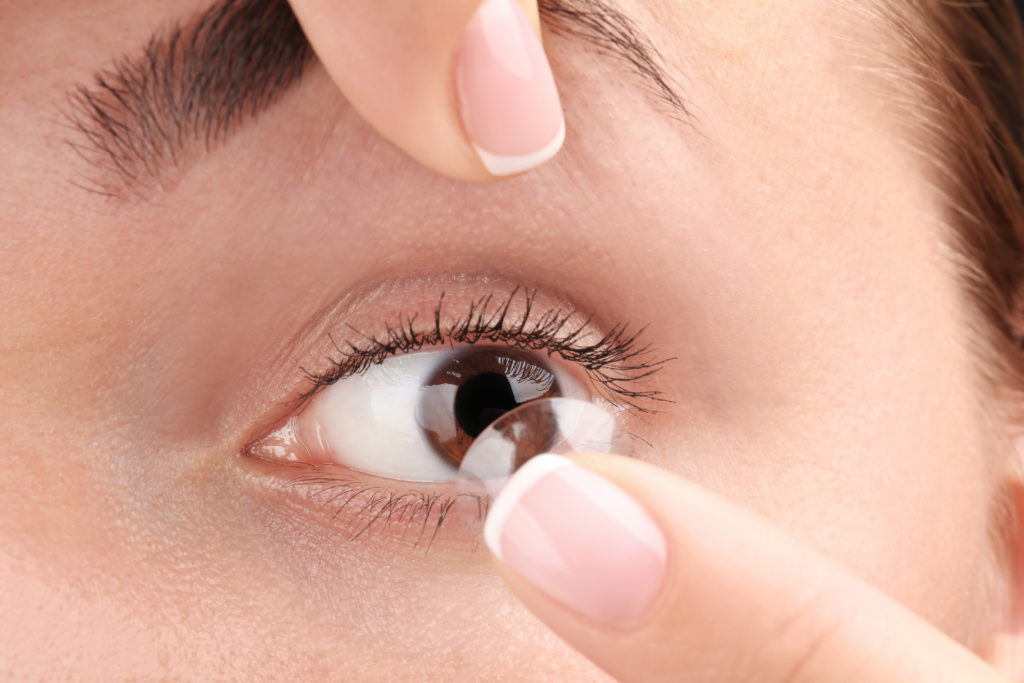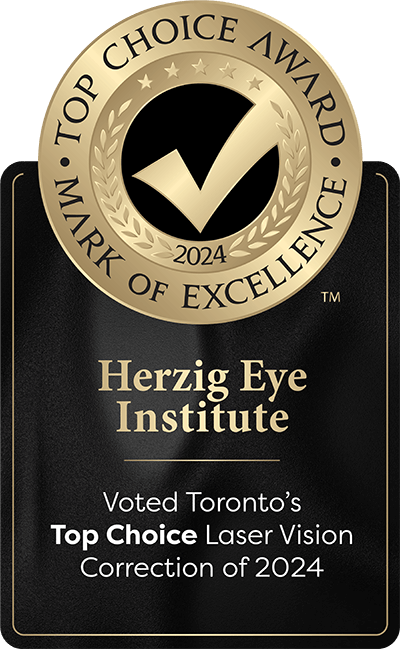Herzig Eye Institute in General Eye Health on March 7, 2022
By: Milad Modabber, MD, MSc, FRCSC, DABO
What is Contact Lens Intolerance?
Sometimes, as a contact lens wearer, you may not notice the gradual onset of contact lens intolerance (CLI). Nonetheless, wearing contact lenses should not be an uncomfortable experience. Some of the symptoms of CLI include foreign body sensation or a feeling of grittiness in your eye, dry eyes, tired eyes, increased eye strain, eye redness, and bumps forming on the inside of your eyelid. These symptoms can worsen the longer you wear contact lenses per day, the overall duration of contact lens use, the type of contact lenses you wear (i.e. monthlies), or poor fitting contact lenses.

The Dos and Don’ts of wearing contacts
Do:
- Limit the number of hours per day you wear contact lenses
- Take one day off per week from contact lens use and wear your glasses
- Ensure you glasses prescription is up-to-date as a possible back up
- Switch to daily contacts
- Wear protective eyewear when doing activities where debris could get into your eyes (ex. gardening or construction work)
- Use preservative-free artificial tears frequently to keep your eyes lubricated
- Visit your optometrist for your annual eye exam to ensure your eyes are healthy and you are a candidate to wear contact lenses
Don’t:
- Sleep in contacts
- Swim in contacts
- Use unclean hands to insert or remove your lenses
- Reuse contact solution

Treating Contact Lens Intolerance
There are many ways to treat contact lens intolerance, both short and long-term. For short-term solutions see the ‘Dos’ of wearing contacts above.
If the ‘Dos’ fail to work in the long run, consider a more permanent solution like refractive surgery. Typically, those who face contact lens intolerance develop dry eye syndrome, so a procedure like ZEISS ReLEx SMILE may be beneficial.
ZEISS ReLEx SMILE is the latest generation of Laser Vision Correction (LVC). Unlike PRK and LASIK, it is the least disruptive to the integrity of the corneas, meaning there is less risk of corneal weakness or dry eye symptoms post-surgery.
If you become contact lens intolerant and no longer want to wear glasses, you may want to consider refractive surgery.
At Herzig Eye Institute, it is our goal to match the right procedure with the right patient. If you’re ready to find relief for your contact lens intolerance and are looking for a permanent solution, book a complimentary consultation by calling 416-929-2020, submitting a web inquiry form, or take our Vision Correction Self-Test.





